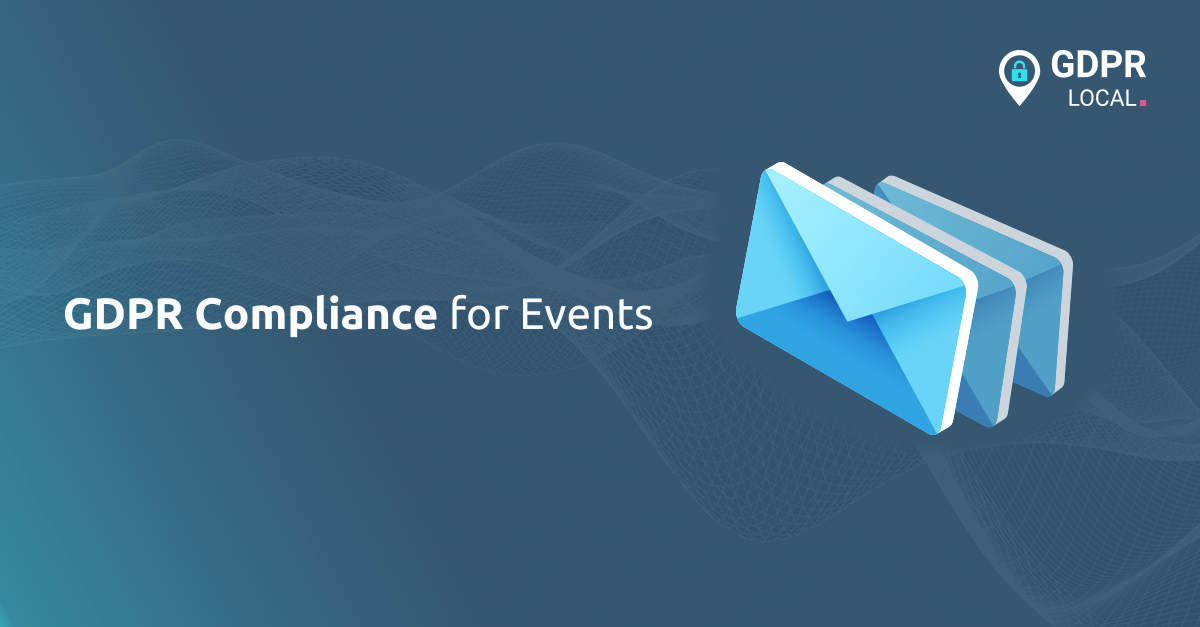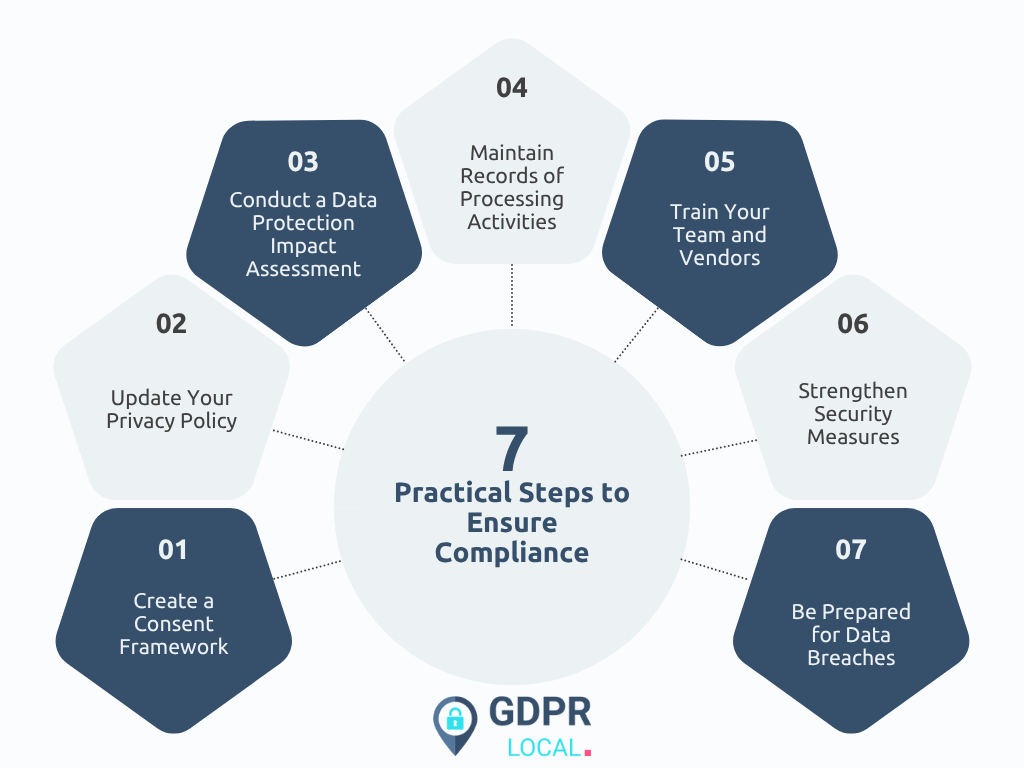
GDPR Compliance for Events
If you are running events in 2025, GDPR compliance is not a formality; it is necessary for building trust in an environment where data protection is a top priority. From registration forms to post-event follow-ups, every step of the attendee experience involves the collection and processing of personal data. Here is a practical guide to ensure your event stays fully compliant.
Key Takeaways
1. GDPR applies to all events that collect personal data from EU or EEA individuals.
Whether the event is in-person, virtual, or hybrid, GDPR governs how attendee data is collected, used, and shared, regardless of where the organiser is based.
2. Consent must be explicit, specific, and separate from general terms.
Event organisers must offer opt-in choices for marketing and the sharing of third-party data. These consents should be transparent and easy to withdraw at any time.
3. Data protection must be integrated at every stage of the event.
From registration to follow-up, organisers should adhere to GDPR principles, including data minimisation, purpose limitation, security, and documentation, while also preparing for potential data breaches.
GDPR in the Context of Events
The GDPR applies to any event where personal data of EU or EEA individuals is collected, regardless of whether the event is physical, virtual, or a hybrid event. This includes events organised by companies located outside the EU if the event targets European citizens. Attendees are more aware than ever of their privacy rights and expect transparency when their data is being collected or shared.
Core GDPR Principles for Event Planning
Purpose Limitation
Collect personal data only for specific and legitimate event-related purposes. Do not reuse it for unrelated marketing campaigns without additional consent.
Data Minimisation
Only gather strictly necessary information. If you do not need someone’s job title or dietary requirements, do not ask for it.
Lawfulness and Consent
Ensure that all consents are explicit and separated from general terms and conditions. Use precise language and avoid pre-checked boxes.
Transparency
Provide a clear and accessible privacy notice at the point of data collection. It should explain who is collecting the data, for what purpose, and for how long it will be retained.
Security and Confidentiality
Implement precautions to protect attendee data. This includes access controls, encrypted storage, and secure data sharing practices.
Practical Steps to Ensure Compliance
Create a Consent Framework
Make sure you clearly explain each type of data usage and allow attendees to opt in voluntarily. If sponsors are involved, specify what data they will receive and for what purpose.
Update Your Privacy Policy
Provide event-specific privacy notices that explain how attendee data will be used. Include contact details for your Data Protection Officer if applicable.
Conduct a Data Protection Impact Assessment
If your event involves large-scale data collection or the handling of sensitive information, such as health data, assess the risks and document how you will mitigate them.
Maintain Records of Processing Activities
Keep detailed logs of what data you collect, why you collect it, how long it is stored, and who has access to it.
Train Your Team and Vendors
Ensure that staff and third-party vendors handling personal data are aware of the GDPR requirements. Everyone should know how to handle a subject access request or a data breach.
Strengthen Security Measures
Use password protection, encryption, and regular audits to prevent unauthorised access to attendee data.
Be Prepared for Data Breaches
Have a written procedure for identifying, reporting, and resolving data breaches. If a breach occurs that poses a risk to attendees’ rights, you must notify the relevant data protection authority within 72 hours.

Roles and Responsibilities
Data Protection Officer
Appoint a DPO if your event involves large-scale monitoring or sensitive data. The DPO will oversee compliance, conduct audits, and serve as the primary point of contact for authorities and data subjects.
Event Staff and Service Providers
Ensure that everyone involved understands their responsibilities, whether as data controllers or processors. Contracts with vendors should include data protection clauses and define how data is handled.
Final Thoughts
GDPR compliance is entirely achievable when you build it into your event planning process. By implementing clear policies, minimising data collection, and strengthening security, you reduce legal risk and earn the trust of your attendees and partners. The potential penalties for non-compliance are significant, but the long-term benefits of doing things right are even greater.
Frequently Asked Questions
Does GDPR apply to events outside the EU?
Yes. If your event targets EU or EEA residents or collects their data, GDPR applies, regardless of where the event is held or where the organiser is based.
Do I need consent to share attendee data with sponsors?
Yes. Attendees must give explicit, informed consent before their data can be shared with third parties such as sponsors or partners.
What happens if there is a data breach at my event?
If the breach poses a risk to attendees’ rights or freedoms, you must report it to the relevant data protection authority within 72 hours and inform affected individuals if necessary. A breach response plan should be in place in advance.